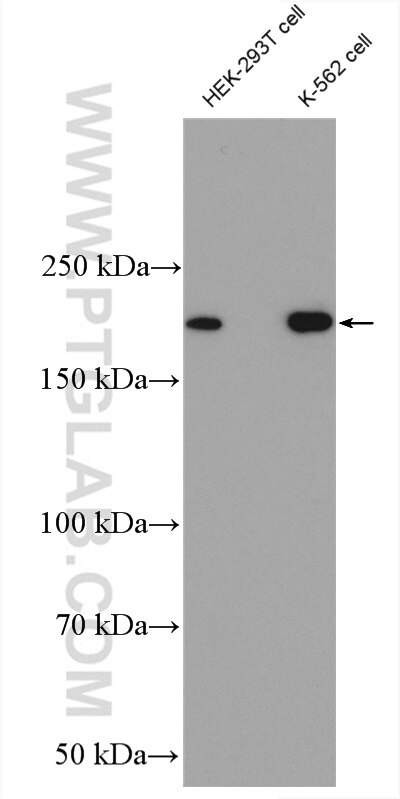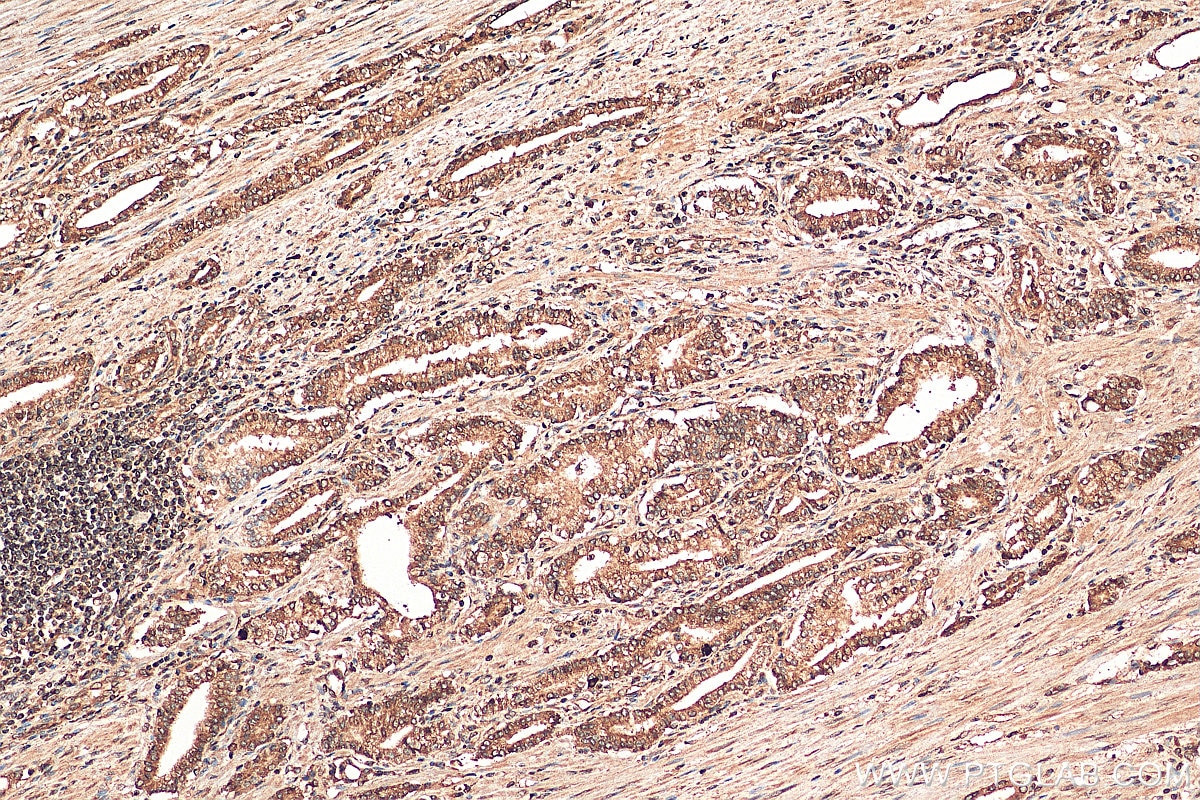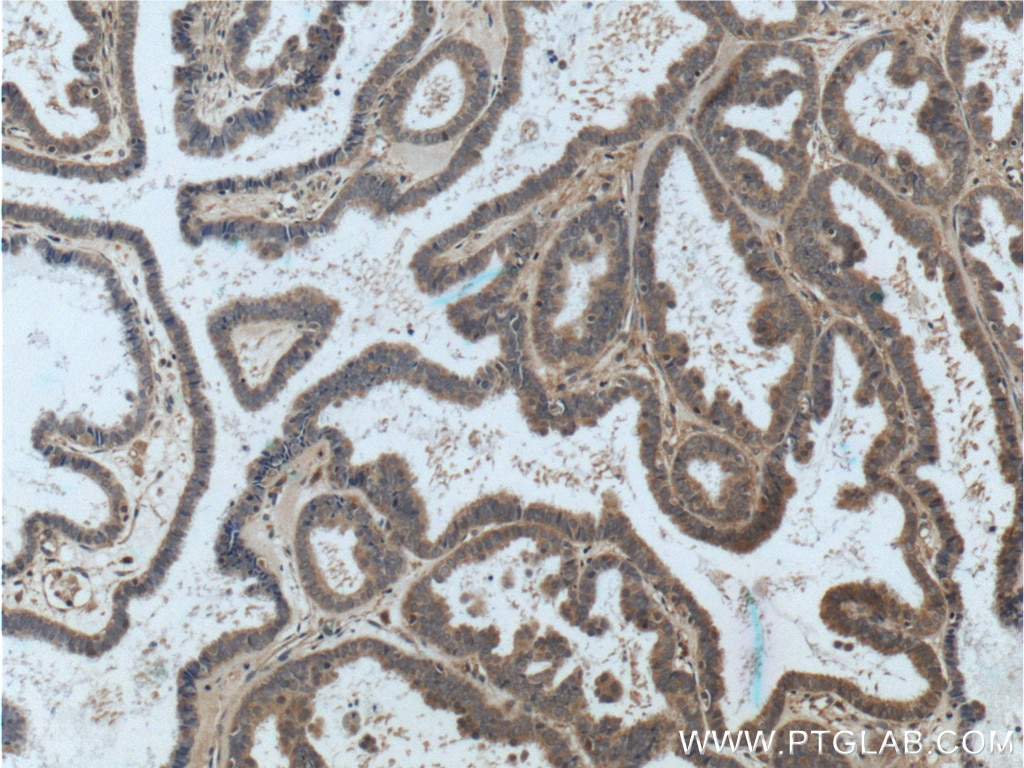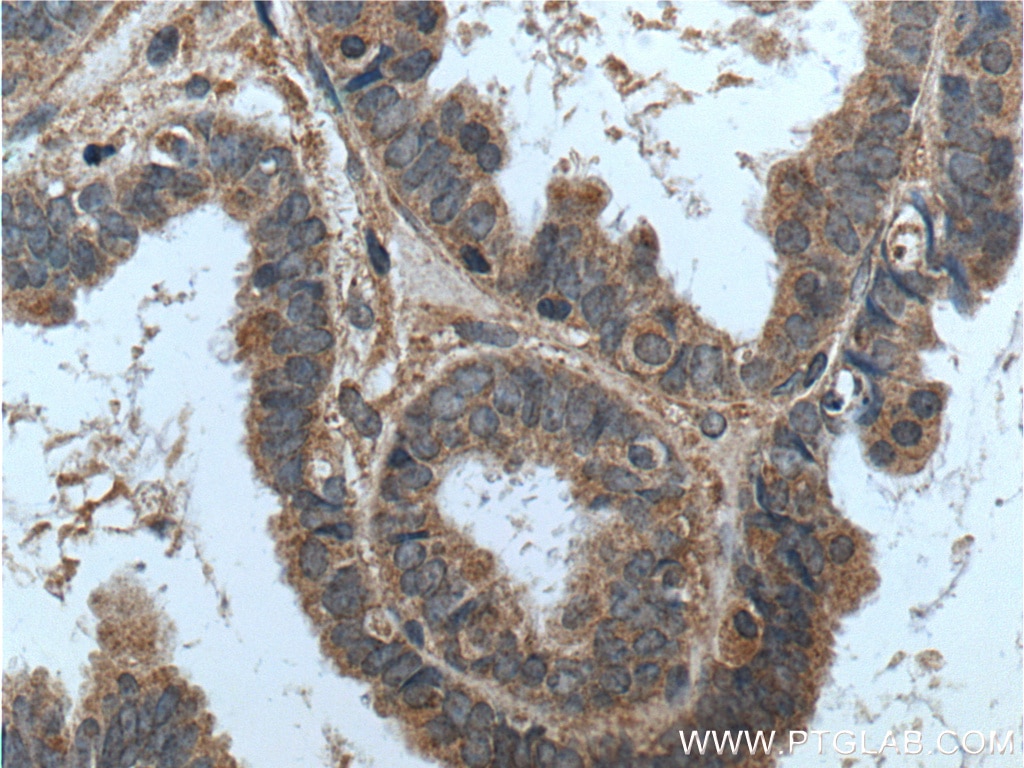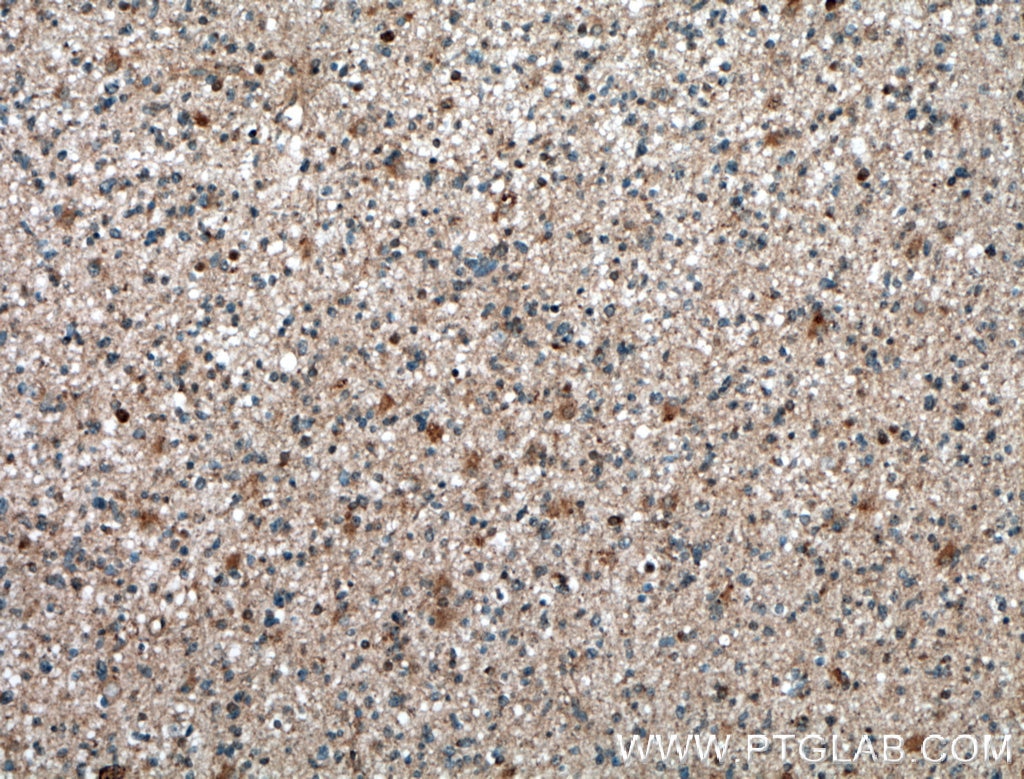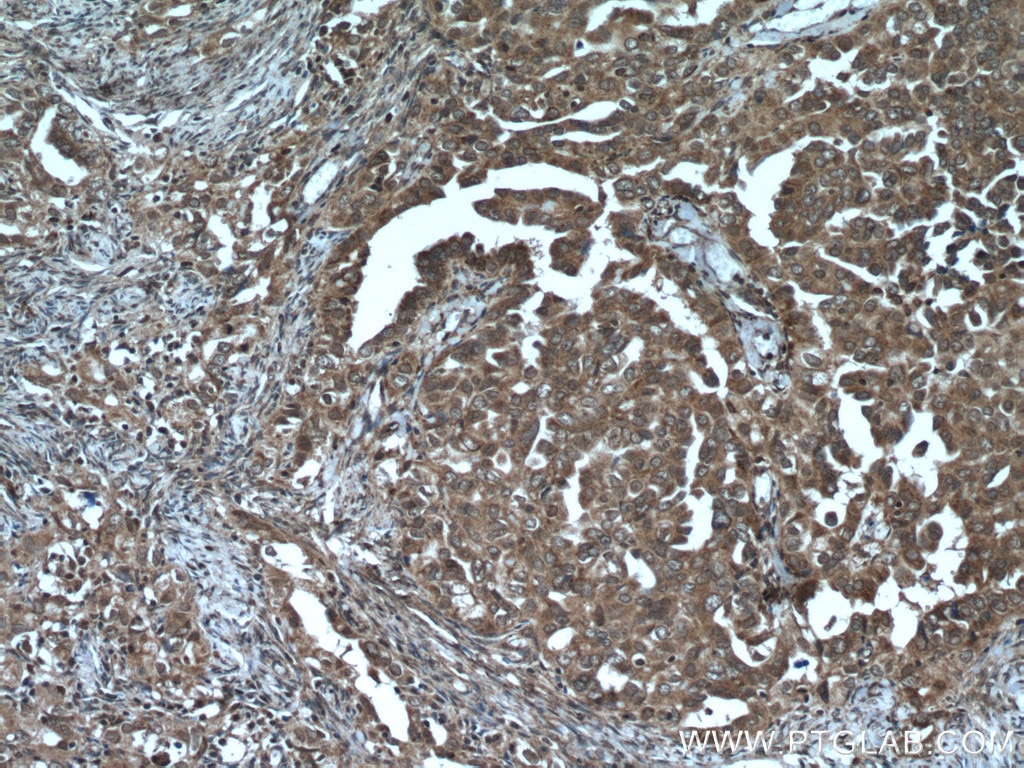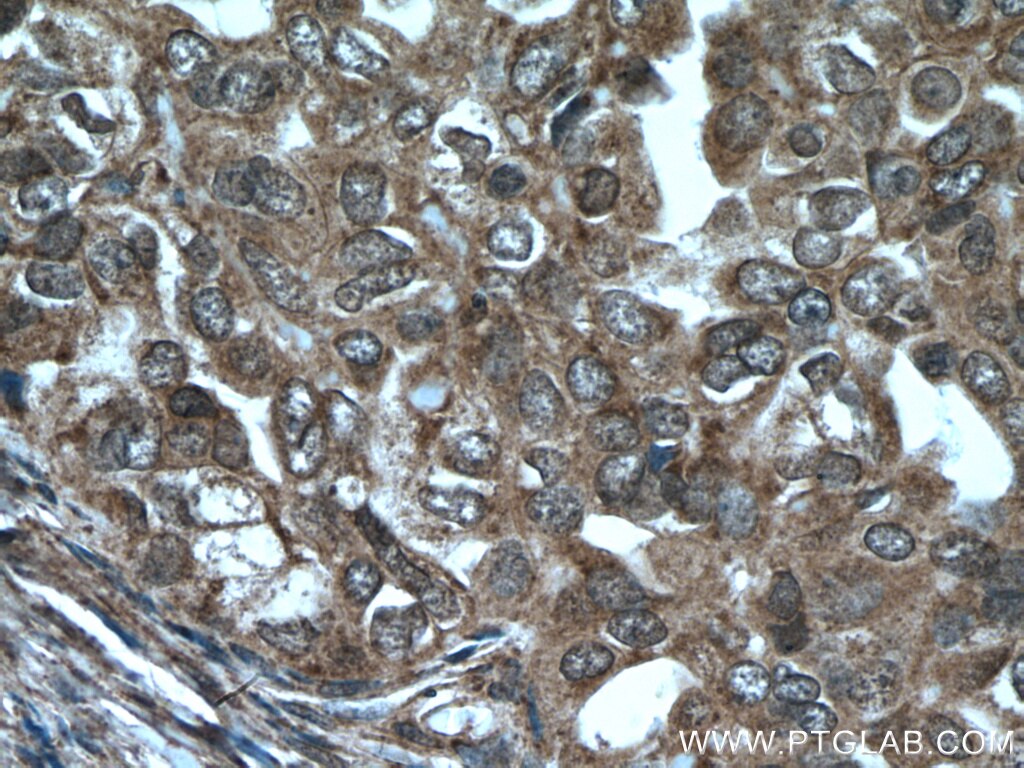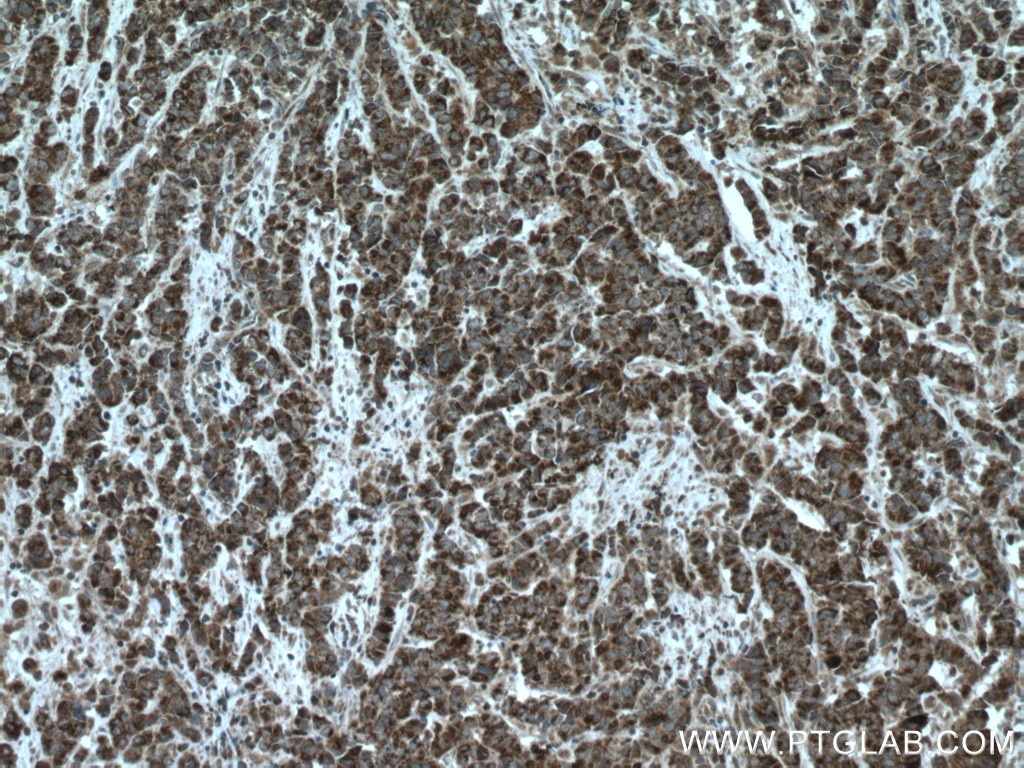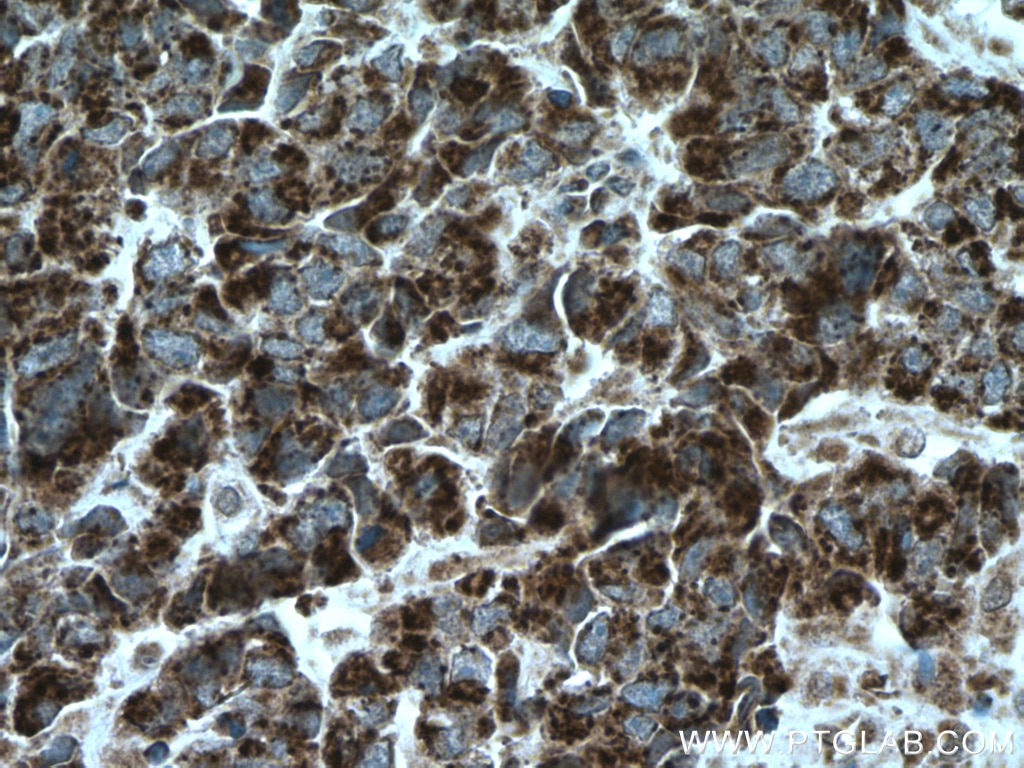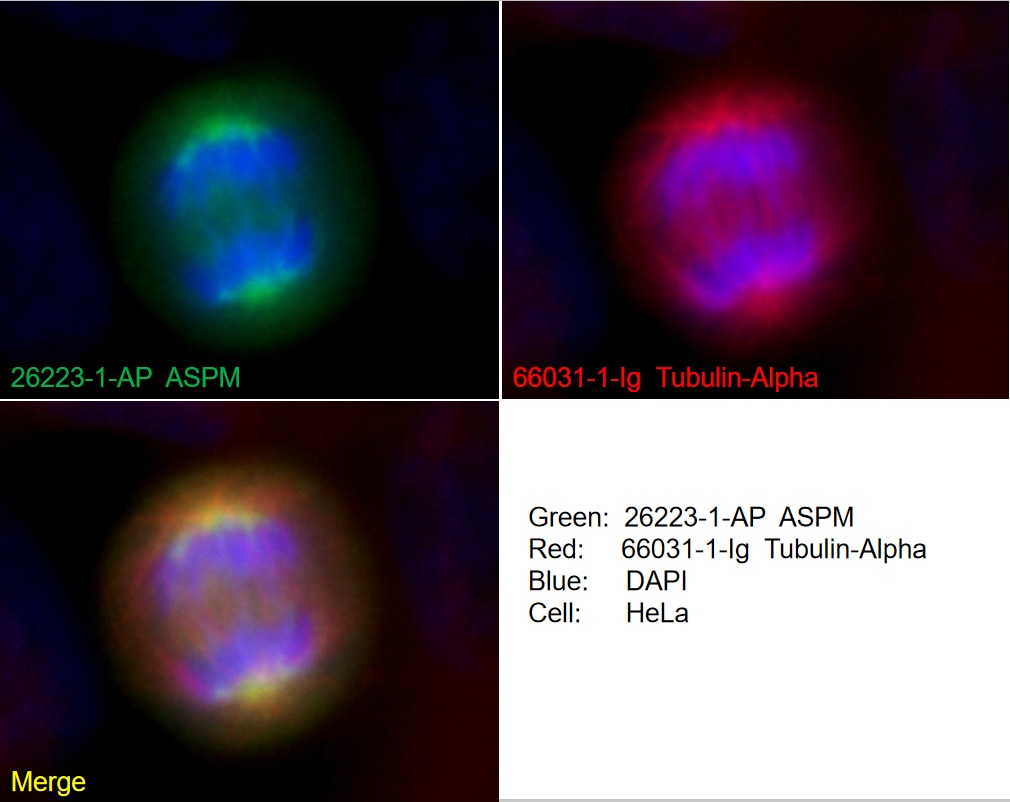- Phare
- Validé par KD/KO
Anticorps Polyclonal de lapin anti-ASPM
ASPM Polyclonal Antibody for WB, IHC, IF/ICC, ELISA
Hôte / Isotype
Lapin / IgG
Réactivité testée
Humain et plus (1)
Applications
WB, IHC, IF/ICC, IP, CoIP, ELISA
Conjugaison
Non conjugué
N° de cat : 26223-1-AP
Synonymes
Galerie de données de validation
Applications testées
| Résultats positifs en WB | cellules HEK-293T, cellules K-562 |
| Résultats positifs en IHC | tissu de cancer de la prostate humain, tissu de gliome humain, tissu de tumeur ovarienne humain il est suggéré de démasquer l'antigène avec un tampon de TE buffer pH 9.0; (*) À défaut, 'le démasquage de l'antigène peut être 'effectué avec un tampon citrate pH 6,0. |
| Résultats positifs en IF/ICC | cellules HeLa, |
Dilution recommandée
| Application | Dilution |
|---|---|
| Western Blot (WB) | WB : 1:500-1:1000 |
| Immunohistochimie (IHC) | IHC : 1:50-1:500 |
| Immunofluorescence (IF)/ICC | IF/ICC : 1:150-1:600 |
| It is recommended that this reagent should be titrated in each testing system to obtain optimal results. | |
| Sample-dependent, check data in validation data gallery | |
Applications publiées
| KD/KO | See 5 publications below |
| WB | See 9 publications below |
| IHC | See 9 publications below |
| IF | See 5 publications below |
| IP | See 1 publications below |
| CoIP | See 1 publications below |
Informations sur le produit
26223-1-AP cible ASPM dans les applications de WB, IHC, IF/ICC, IP, CoIP, ELISA et montre une réactivité avec des échantillons Humain
| Réactivité | Humain |
| Réactivité citée | Humain, souris |
| Hôte / Isotype | Lapin / IgG |
| Clonalité | Polyclonal |
| Type | Anticorps |
| Immunogène | ASPM Protéine recombinante Ag24166 |
| Nom complet | asp (abnormal spindle) homolog, microcephaly associated (Drosophila) |
| Masse moléculaire calculée | 410 kDa or 218 kDa |
| Poids moléculaire observé | 218 kDa |
| Numéro d’acquisition GenBank | BC034607 |
| Symbole du gène | ASPM |
| Identification du gène (NCBI) | 259266 |
| Conjugaison | Non conjugué |
| Forme | Liquide |
| Méthode de purification | Purification par affinité contre l'antigène |
| Tampon de stockage | PBS with 0.02% sodium azide and 50% glycerol |
| Conditions de stockage | Stocker à -20°C. Stable pendant un an après l'expédition. L'aliquotage n'est pas nécessaire pour le stockage à -20oC Les 20ul contiennent 0,1% de BSA. |
Protocole
| Product Specific Protocols | |
|---|---|
| WB protocol for ASPM antibody 26223-1-AP | Download protocol |
| IHC protocol for ASPM antibody 26223-1-AP | Download protocol |
| IF protocol for ASPM antibody 26223-1-AP | Download protocol |
| Standard Protocols | |
|---|---|
| Click here to view our Standard Protocols |
Publications
| Species | Application | Title |
|---|---|---|
Aging (Albany NY) ASPM promotes glioblastoma growth by regulating G1 restriction point progression and Wnt-β-catenin signaling.
| ||
Int J Cancer Development and validation of a five-gene model to predict postoperative brain metastasis in operable lung adenocarcinoma. | ||
Front Oncol Identifying and Validating Potential Biomarkers of Early Stage Lung Adenocarcinoma Diagnosis and Prognosis. | ||
J Biol Chem The Transcription factor NF-YA is Crucial for Neural Progenitor Maintenance during Brain Development | ||
DNA Cell Biol ASPM is a Novel Candidate Gene Associated with Colorectal Cancer Cell Growth. | ||
Int J Endocrinol ASPM Promotes the Progression of Anaplastic Thyroid Carcinomas by Regulating the Wnt/β-Catenin Signaling Pathway.
|
